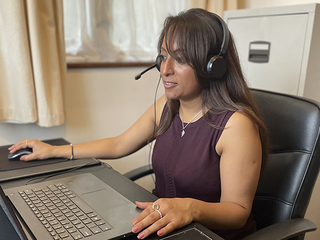CLL and infection
If you have CLL, you need to know that you're at higher risk of getting infections like flu, pneumonia, covid-19 and shingles.
Common signs of infection
Chronic lymphocytic leukaemia (CLL) affects your immune system, so even if you don’t need treatment, you’re more likely to get infections.
The most common signs of infection are:
- fever (a temperature of 37.5°C or above)
- low temperature (less than 36°C)
- shivering and sweating
- feeling confused
- sore throat and cough
- rashes and swelling
- frequent watery poos (diarrhoea)
- a burning or stinging sensation when weeing, or trouble weeing at all
- unusual stiffness of the neck
- achy, flu-like symptoms
- generally not feeling well.
If you’re having treatment for CLL, you should contact your hospital team if you have signs of an infection. It’s very important to tell them straight away. Not only are infections easier to treat when they’re picked up early, but they can also be life-threatening if they’re left to get a hold.
If you’re on active monitoring (watch and wait), you may be able to see your GP instead.
Find out who to contact if you think you have an infection and keep the details where you can easily find them.
We have more information about managing your risk of infection.
We also have information about shingles, an infection of a nerve and the skin around it. This is common in people with a weakened immune system who have had chicken pox in the past.
Vaccinations and CLL
If you have CLL, even if you are not on treatment, you should avoid having live vaccines.
Fortunately only a few vaccines used in the UK are live ones. The most commonly used are MMR (measles, mumps and rubella) and the shingles vaccine Zostavax®. (The shingles vaccine Shingrix isn’t live, so it’s suitable for people with CLL.)
The yellow fever vaccine, occasionally needed for travel to certain areas, is also a live vaccine.
You’ll be advised to have seasonal flu, pneumococcal and Hib vaccinations to protect you against serious infections. It is also safe to be vaccinated against covid-19 – none of the approved covid vaccines are live.
Vaccinations may not work as well as for someone with a healthy immune system but should offer some protection. Your healthcare team will be able to give you more information.
Read our information about covid vaccinations and how effective they may be for people with blood cancer.
If you are worried about your infection risk, speak to your GP or hospital team, or contact our Support Service free on 0808 2080 888 to talk things through.

Worried about anything or have questions?
If you need someone to talk to, please don't hesitate to contact our Support Service by phone or email.
